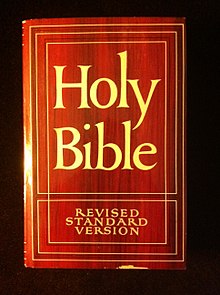
A selection of books from the 2017 Banned Books Read-Out.
Why We Love Banned Books
The books that shape us tend to be those that introduce us to different worlds, cultures and perspectives. They allow us to experience realities unlike our own so that we can better understand the world around us.
But even within these differences, the reader can find familiar ground—a character to relate to, a narrative to sympathize with, a storyline in common. These books introduce us to the seemingly different only to show us that we’re not so different after all.
In many instances, these differences make people uncomfortable. In fact, if a book has racial themes, alternative lifestyles, profanity, violence, witchcraft, sex, religion or LGBTQ-related topics, there’s a decent chance someone has tried to challenge or ban it (as in, attempted to or successfully removed it from public consumption). Those who challenge or ban a book have tried to prevent people from reading something just because they don’t approve of it.
By challenging or banning a book, they are attempting to prohibit free speech. In today’s world, perhaps more so than usual, we need to stand together in support of the freedom of expression.
Celebrate your freedom to read by curling up with your favorite banned books. Looking for suggestions on where to start? Here are 10 staff picks (in alphabetical order)—and why we love them:
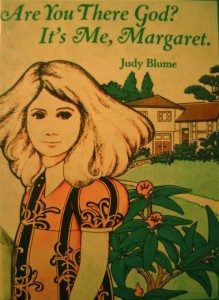 1. Are You There God? It’s Me Margaret by Judy Blume
1. Are You There God? It’s Me Margaret by Judy Blume
Reasons Challenged: Sexuality, religion, unsuitable for age group
“I love this book because it helped me so much as a young girl navigating changes to my body. I read it with my closest girlfriends and it was a bonding experience to sit at the lunch table reading passages to each other.” – Amy Eyre, Access Services
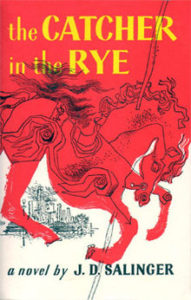 2. The Catcher in the Rye by J.D. Salinger
2. The Catcher in the Rye by J.D. Salinger
Reasons Challenged: Offensive language, sexually explicit, unsuited to age group
“It’s a book that invites you in the narrator’s head, makes you feel part of his life. Even though he’s only a teenager, something about reading the book made me feel sophisticated and, at the same time, empathetic to a kid who was struggling.” – Monica McCormick, Office of the Vice Provost
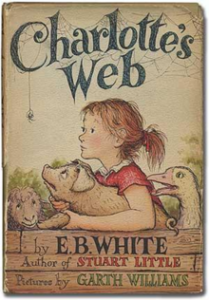 3. Charlotte’s Web by E.B. White
3. Charlotte’s Web by E.B. White
Reasons Challenged: Religious viewpoint. (A group claimed it was sacrilegious and disrespectful to God to portray animals with human abilities, such as being able to speak.)
“This story was a favorite of mine as a child and as a teacher, and I shared it with my boys growing up. I loved how the story let my children use their imagination through talking animals and helped them learn about life and death.” – Cindy Bailey, Access Services
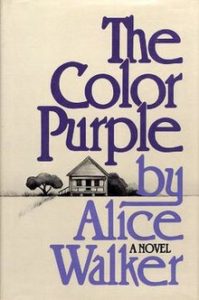 4. The Color Purple by Alice Walker
4. The Color Purple by Alice Walker
Reasons Challenged: Homosexuality, offensive language, sexually explicit, unsuitable for age group
“The language is raw and direct, and the reader is drawn into it inexorably. It is an honest treatise on incest, abuse and, finally, redemption against all odds. It is discomfiting and celebratory all at once.” – Jan Broske, Special Collections and Museums
 5. The Giver by Lois Lowry
5. The Giver by Lois Lowry
Reasons Challenged: Sexually explicit, unsuitable for age group, violence
“I love this book because it really made me think as a teenager and, more recently, as a mom of a teen. The thought that reality and possibilities could be controlled at such a high level in society is rather timely, so a reminder to question what we are told as ‘truths’ is beneficial.” – Shelly McCoy, Office of the Vice Provost
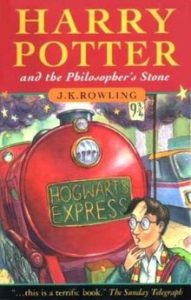 6. The Harry Potter series by J.K. Rowling
6. The Harry Potter series by J.K. Rowling
Reasons Challenged: Anti-family, occult/Satanism, religious viewpoint, violence
“I read aloud to my three daughters from babyhood through high school. This series is pure magical fantasy! I have a visual memory of reading the last page of Harry Potter and the Sorcerer’s Stone, closing the book, then my two older girls bouncing on the bed chanting ‘Read it again, read it again!’” – Valerie Stenner, Special Collections and Museums
“I was aware of the series, but it was hearing more and more people talking about banning it that prompted me to read it. The series was actually getting kids to read, and all of a sudden, people were trying to make that somehow ‘wrong.’ Thus, I was compelled to check it out and was not disappointed.” – David Cardillo, Digital Collections and Preservation
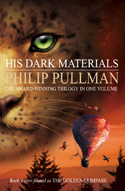 7. His Dark Materials trilogy by Phillip Pullman
7. His Dark Materials trilogy by Phillip Pullman
Reasons Challenged: Occult/Satanism, political viewpoint, religious viewpoint, violence
“Pullman’s answer (and challenge) to C.S. Lewis’ Chronicles of Narnia, this series is as relevant—and in some ways, more so—than it was when the first book was published over two decades ago. Author Russ Johnson wrote, ‘If the idea of an authoritarian leadership catering to religious extremists taking steps to keep people—women, in particular—from thinking too hard strikes you as particularly familiar these days, well, welcome to 2017.’” – Meghann Matwichuk, Multimedia Collections and Services
Reasons Challenged: Religious viewpoint
“It is not only an important book to many people’s faiths; it’s also a compendium of many ‘books’ and different kinds of writing, including law, history, poetry and apocalyptic literature. I find reading the Bible can, at times, be challenging, uncomfortable and require research to understand the culture, language and times—something often lacking in popular discourse. But it’s also often exhilarating and comforting in times of trouble, especially for me in writing about ‘the luminous figure of the Nazarene’ (to quote Albert Einstein).” – Rich Campbell, Multimedia Collections and Services
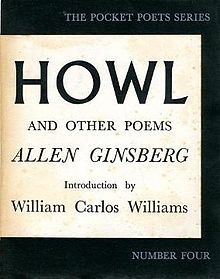 8. Howl and Other Poems by Allen Ginsberg
8. Howl and Other Poems by Allen Ginsberg
Reasons Challenged: Obscenity
“This is my new favorite banned book. In curating the four-case exhibition Literature vs. the Law these past several weeks, I’ve been reminded of both the poem’s power and the fact that authors and readers are not the only people affected by censorship. In this case, the publisher and bookseller were tried for distributing obscene material, but the judge ultimately decided that the poem had redeeming social value.” – Aimee Gee, Reference and Instructional Services
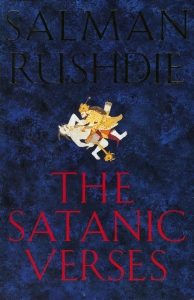 10. The Satanic Verses by Salman Rushdie
10. The Satanic Verses by Salman Rushdie
Reasons Challenged: Blasphemy, religious viewpoint
“I enjoy the way Rushdie recontextualizes historical events in a highly imaginative and playful manner throughout his works. In this book, which sparked great controversy in many Muslim communities, he tells a satirical and fictionalized account of Muhammad, the founding prophet of Islam, interweaving many Christian and pagan themes as well.” – Tim English, Special Collections and Museums
How We Celebrate Banned Books
This year, Banned Books Week runs from September 23-29. Join your fellow rebel readers on the Green outside Morris Library on Wednesday, September 26, for the Banned Books Read-Out.
Take a stand against censorship by picking a poignant passage from your favorite banned or challenged book to read aloud and listen to others share their favorites. Walk-up readers are welcome, but advanced sign-ups are encouraged. Reserve your spot here.
Continue to stand for the banned and celebrate your freedom to read with the four-case exhibition Literature vs. the Law, on view in Morris Library through October 26.
The exhibition highlights legal cases involving the written word and raises important questions about the freedom of the press and intellectual property rights. From Jay-Z to J.K. Rowling, explore complaints made against authors as they were charged with an array of offenses—from blasphemy, obscenity and defamation to plagiarism, fraud and insulting a nation.

